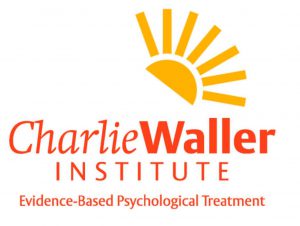This course provides the training needed to qualify as a Senior Wellbeing Practitioner (SWP).
SWPs provide clinical supervision in Children and Young People Mental Health settings to and qualified CWPs and EMHPs who work delivering low-intensity interventions for common mental health problems such as depression and anxiety disorders. SWPs are trained to deliver enhanced low-intensity interventions for school anxiety, self-harm, OCD and traumatic events. SWPs also specialise in adapting interventions for working with neurodiverse children, young people and families, and children and young people with learning disabilities.
Employment is generally by the NHS for the duration of training, plus potentially further employment post-qualification.
You will develop your skills with a mixture of lectures and skills practice, as well as supervisory and clinical work undertaken in the CYP MH setting.
What Can I Expect from the Course?
The course runs over two calendar years; the first focuses on the supervision element of the role and the second covers enhanced and adaptive practice of low-intensity interventions. If you have already completed supervisor training previously, it may be possible to exchange this qualification for the SWP Diploma, joining in Year 2 only for the specialist modules.
The first year (supervision element) consists of 2 compulsory modules:
- Supervisor Training for Children and Young People’s Mental Health
- Supervision of Supervision
This equates to roughly 10 taught University days, 9 University supervision days, and 8 study days, alongside a placement in a CYP MH service.
The second year (enhanced and adaptive practice) consists of 2 compulsory modules:
- Enhanced Practice in Early Intervention
- Adapting Low-Intensity Practice
This equates to roughly 33 taught University days, 8 University supervision days, and , alongside a placement in a CYP MH service.
You will be taught through a variety of teaching methods including lectures, experiential skills, training workshops, self-directed learning and group supervision. You will apply and develop the skills you learn in your trainee SWP role within a mental health service.
SWPs should be supervised in service in line with registering bodies (BPS/BABCP) guidance for CWPs and EMHPs. Across the first year, trainees are expected to undertake 20 clinical supervision hours with supervisees and receive hours of Supervision of Supervision. In the second year, trainees are expected to receive 20 hours of supervision and to complete 8 training cases (seen for a minimum of 5 sessions, or until completion).
How is the Course Assessed?
The course is assessed through a combination of written and clinical assessments. Written assignments include essays, reflective reports and presentations. Clinical assessments include recordings and self-rating of a supervision session.
At the end of each year, students are expected to demonstrate their learning and development through a clinical portfolio.
Entry Requirements
Entry requirements for SWP trainees are:
-
Recognised graduate/postgraduate professional training (qualified CWP or EMHP)
- Training and experience in CBT-informed interventions
- A minimum of 2 years’ experience in CYP MH is highly advisable
-
Access to trainees/trained staff delivering the relevant treatment protocols during and after training (for supervision year)
-
Access to enhanced presentation cases (for enhanced year)
Careers
Successful completion of the programme will enable you to work as a qualified supervisor and SWP in a mental health service, gaining more responsibility and remuneration.
For further details, please visit the Health Careers webpage.
How to Apply
The Charlie Waller Institute usually offers one intake per year in March. The number of places available per cohort is dependent on NHS service funding.
Potential candidates must express interest through their employing NHS services. The University of Reading will review the application and a member of our team will be present on the interview panel.
Further Information
For further information on this programme, please contact Jeevan Kang, Admissions Tutor for SWP, at j.k.kang@reading.ac.uk .

